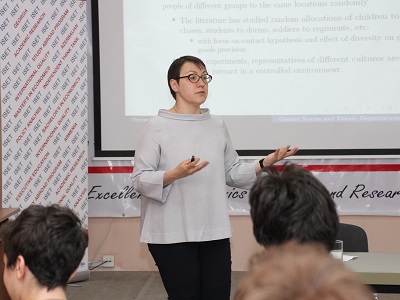- Details
The debate over working hours has become a frequent topic of discussion in recent years, especially as increasing numbers of modern industries (especially workplaces such as technology startups) find the traditional nine-to-five standard incompatible or irrelevant. Research and experiments – most notably those conducted in Scandinavia – have also contributed to the discussion, especially with regards to the idea that overworking can be unhealthy or dangerous.
However, the experiments and research have universally been concentrated on the developed world, with the circumstances of many countries remaining unexamined. To this end, Maksym Obrizan of the Kyiv School of Economics has been examining the issue in a wider context on his own.
- Details
It may appear as though the subject of gender and gender norms is a fairly recent socio-political phenomenon – particularly in Eastern Europe and Central Asia – but it does, in fact, have a longer history than might initially be thought, even in the former Soviet Union; its effects can still be felt and observed today.
Dr. Ekaterina Zhuravskaya of the Paris School of Economics visited ISET on May 27 to discuss the topic. ‘Diffusion of Gender Norms: Evidence from Stalin’s Ethnic Deportations’ delved into the effects of mass Soviet deportations of populations from their homes in the western parts of the Soviet Union to far-flung areas of Central Asia and Siberia. In excess of two million people were evicted from their homes and relocated, a horrifying process which nevertheless altered the perceptions of gender norms in the new places they were forced to call home.












